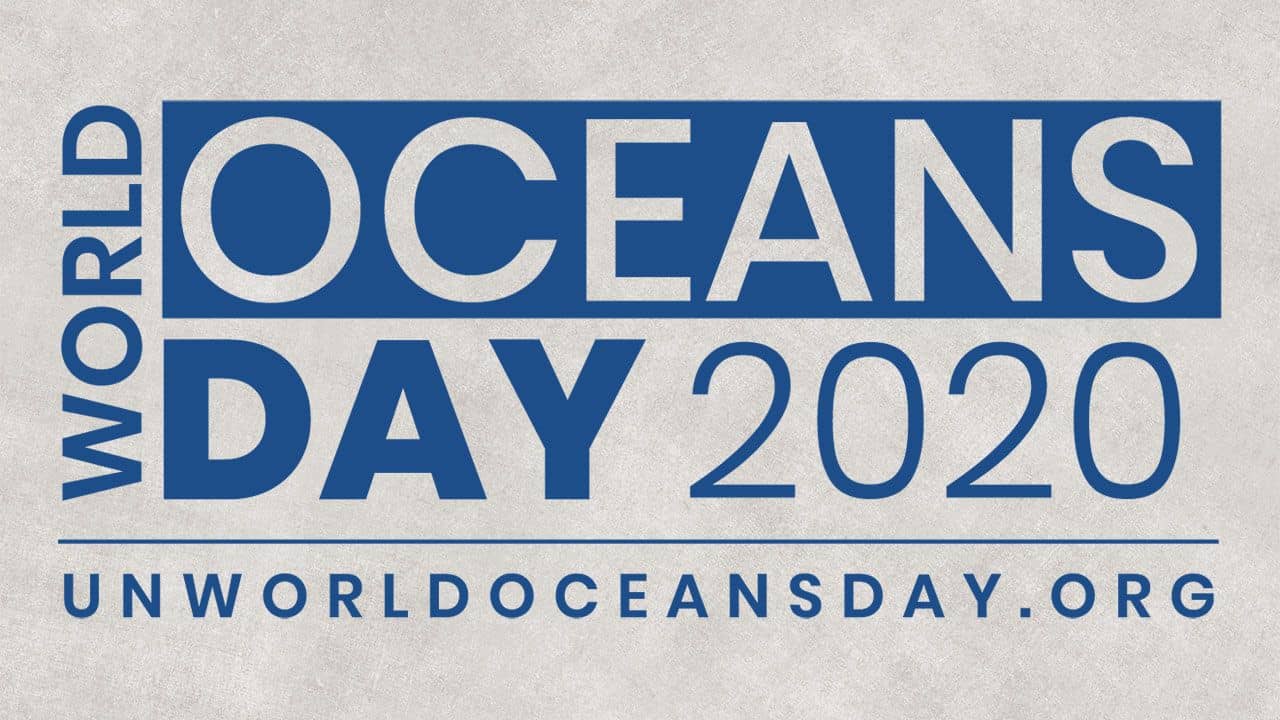
World Oceans Day is celebrated every year on 8 June, following the United Nations Conference on Environment and Development, held in Rio de Janeiro in 1992. As a means of advancing Sustainable Development Goal 14, this year’s theme is “Innovation for a Sustainable Ocean.” Parliamentarians and law-making are a key element of these innovative solutions.
UN World Oceans Day 2020
Protect our Oceans, ensure our Survival
Covering three-quarters of the earth, oceans provide half of the world’s oxygen and host 80% of marine life. They absorb about 30% of the carbon dioxide produced by humans, thus minimizing the impact of global warming. One-third of the world’s population depends on the oceans as their primary source of protein. Ultimately, healthy oceans are key to human security, economy, and survival. This is currently being jeopardized by overfishing, pollution, and climate change.
Human activities linked and dependent on the oceans must also be protected and regulated. Marine and coastal industries produce 5% of the global GDP per year and employ vast sectors of the population. Proper international and national regulations must be drafted and enforced to ensure the workers’ safety and security, preventing the commission of human rights violations such as human trafficking and forced labor.
Collective Responsibility
Conserving and sustainably using our oceans, as well as ensuring the safety and security of maritime and coastal workers, is a collective responsibility. Law and policymakers, alongside scientists and civil society, must come together to raise awareness on the emerging challenges our oceans face today and implement rapid, effective, and innovative solutions.
As the largest global network of parliamentarians acting in their individual capacity and committed to a more sustainable, safe, equitable and democratic future, Parliamentarians for Global Action (PGA) mobilizes support for the protection of the oceans. On 22 November 2019, PGA convened the first International Parliamentary Oceans Day (41st Annual Forum in Praia, Cape Verde) and adopted the Praia Plan of Action, a parliamentary action-oriented commitment to work towards the realization of SDG 14.
The key areas of work of PGA’s Oceans Campaign have been:
- Ending illegal, unreported, and unregulated (IUU) fishing- implementation of SDG 14.4 & 14.6
- Increasing sustainability of small-scale fisheries (SSF) - implementation of SDG 14.b
- Protecting the high seas - implementation of SDG 14.c
Parliamentarians and Innovation for a Sustainable Ocean
Innovation should not only be technological but also legal. For more sustainable oceans, it is necessary not only to ratify and implement existing international treaties but also to identify legal loopholes and develop new international regulations to address them comprehensively. Members of Parliament (MPs) and government officials are at the forefront of legal innovation.
- Policy: Turn innovation into more protection
PGA has identified two issues that require immediate attention and innovative legal thinking: small-scale fisheries and the high seas.
- In partnership with the ELI-Ocean Program research team, PGA is carrying out a project to Voluntary Guidelines for Securing Sustainable Small-Scale Fisheries in the Context of Food Security and Poverty Eradication. The aim is to achieve comprehensive policy reforms and strengthen the rule of law in coastal fisheries management.
- PGA also encourages States to develop an international legally-binding instrument under the United Nations Convention on the Law of the Sea to ensure the conservation and sustainable use of marine biological diversity in areas beyond national jurisdiction in line with international standards.
Additionally, PGA members work towards ending IUU fishing by promoting the ratification and implementation of the FAO’s Port State Measures Agreement (which addresses the legality of catch), the ILO’s Work in Fishing Convention (concerning decent working conditions), and IMO’s Cape Town Agreement (which establishes fishing vessel safety regulations). Of these treaties, the Cape Town Agreement has yet to enter into force. The CTA will enter into force once 22 States with a total of 3,600 eligible vessels ratify it or accede to it.
- Oversight and accountability: Turn innovation into more transparency
Innovative ways to promote more sustainable oceans involve data transparency. MPs can draft, introduce, and pass legislation requesting that private companies and public agencies make public and accessible data that is deemed essential to monitoring SDG 14 compliance. More transparency to marine and coastal practices is vital for prevention and accountability.
Are you an MP who wants to protect the oceans?
Please contact PGA to become an active member of PGA’s Ocean Campaign:
Ms. Leyla Nikjou
Senior Consultant, Oceans Campaign
Leyla.Nikjou@pgaction.org
Access PGA’s Parliamentary Resources for the Protection of the Oceans.

